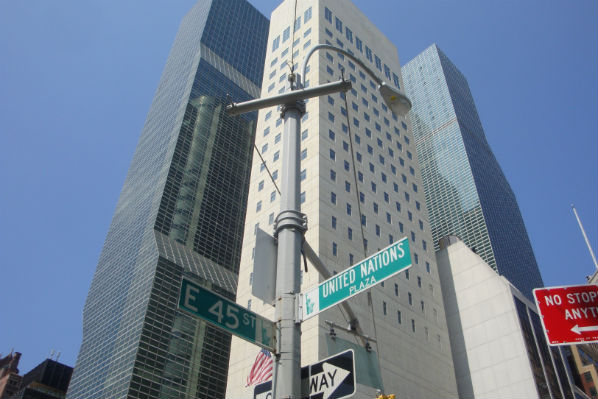
Caribbean, News Briefs, North America, Puerto Rico, United States
As UN Debate on Decolonization Begins, Puerto Rico Presses for Self-Determination
October 8, 2015 By Dusty Christensen
NEW YORK — Advocates of Puerto Rican self-determination have for decades claimed that their status as a U.S. commonwealth amounts to second-class citizenship, but regular petitions to the United Nations’ Special Committee on Decolonization have so far been fruitless. This year, however, leading figures in the statehood and independence movements are more hopeful than ever that the U.N. Fourth Committee, which begins debate on decolonization today, will finally take up the issue.
Puerto Rico is currently suffering through what the territory’s Governor Alejandro García Padilla has called a “death spiral” of public debt. The island’s Public Finance Corporation defaulted on a $58 million debt obligation early last month — a first in Puerto Rican history — and the government faces over $73 billion in debt that García said is “not payable.” Many supporters of greater Puerto Rican autonomy say the commonwealth’s debt crisis stems from the economic disadvantages of being a U.S. colony.
“We can not separate the current economic conditions and the deterioration of those conditions from the political status of the island,” said Ken Oliver Méndez, executive director of the U.S. Council for Puerto Rican Statehood, the mainland’s oldest pro-statehood organization.
Most of Puerto Rico’s debt is held in municipal bonds, which are the most common way for municipalities to raise money. Normally, interest gained from investing in municipal bonds is exempt from federal, state and local taxes if the purchaser is from that particular state or municipality. In Puerto Rico’s case, however, interest collected from municipal bonds is tax exempt regardless of whether the investor lives in Puerto Rico or not.
This unique situation, Méndez said, made government officials and investors from across the country “drunk on debt” and the high returns it provided to investors. If Puerto Rico were a state, he said that “bonds sold all these years could not have been sold as they were.”
Now, Puerto Rico’s political status creates barriers to reversing the ongoing economic meltdown. Because the island is a commonwealth, the Puerto Rican government cannot access remedies available to either U.S. states (declaring bankruptcy) or independent countries (devaluing its currency or soliciting financing from international banks). Chapter 9 bankruptcy is available to municipalities like Detroit that can’t pay off their bonds, but denied to Puerto Rican municipalities and public corporations.
The United Nations, however, considers Puerto Rico and other U.S. territories — American Samoa, Guam and the Virgin Islands — “non-self-governing territories,” and as such they are given an official voice at the Fourth Committee of the U.N. General Assembly.
Puerto Rico, however, was taken off the U.N. list of colonial territories in 1953 in what Fernando Martín, the executive president of the Puerto Rican Independence Party, considers an act of subterfuge.
“There was no real decolonization, but instead a facade of local self-government,” said Martín, who since the early 1980s has appeared almost yearly at the U.N. special committee as a delegate from his party.
Martín said that the United States made Puerto Rico into a commonwealth in order to get the United Nations to remove it from the list, without granting the territory any substantive autonomy. Now, because of its exclusion from that list, Puerto Rico relies on Cuba’s yearly solidarity to bring its case.
Representatives from the both the U.S. and Cuban missions to the United Nations did not respond to email or phone requests for comment on this story.
This year, Martín said calls for Puerto Rican self-determination in the United Nations have gained even more traction for several reasons. For one, Cuba has begun normalizing diplomatic relations with the United States.
“Now, Cuba — though certainly not an ally — is no longer in a zero-sum position with the United States on Latin American issues,” Martín said. “Its position on Puerto Rico will be more influential in U.S. policy-making circles.”
Second, the issue of Puerto Rico’s status has become an unavoidable issue this election year. The commonwealth’s 2016 gubernatorial race will likely see incumbent Alejandro García Padilla, a supporter of the status quo, running against pro-statehood candidate, Resident Commissioner Pedro Pierluisi, the commonwealth’s current non-voting member of Congress.
“We must fight because Puerto Rico’s current status is intolerable,” Pierluisi said when he appeared in front of the special committee in June. “It is the root cause of the current economic and health care crisis in Puerto Rico, which is driving island residents to relocate to the states in massive numbers.”
Pierluisi has appeared in front of the special committee since 2012, after a referendum found that a majority of voters disapproved of the island’s relationship with the United States. “In the absence of concrete and timely action from the U.S. government, I will not hesitate to raise this case before the United Nations or any other appropriate international forum,” Pierluisi said in 2013. “The only path forward is statehood or nationhood.”
Several U.S. presidential candidates have also raised the issue of Puerto Rican self-determination during campaign stops on the island. Democratic hopefuls Hillary Clinton and Martin O’Malley, as well as Republican aspirants Marco Rubio and Jeb Bush have all voiced approval for Puerto Rican statehood if the commonwealth votes for it. The U.S. Congress has allocated $2.5 million for a federally authorized referendum on statehood to be held in the future. Many presidential candidates have also come out in support of allowing Puerto Rico to file Chapter 9 bankruptcy, which would allow for debt relief.
Proclamations from presidential hopefuls, however, may seem little more than election-season platitudes to Puerto Ricans, who can vote in primary elections, but are barred from voting for president if they live on the island. What’s more, the commonwealth’s creditors — largely investment funds on the U.S. mainland — have lobbied heavily in Congress against a bill that would authorize Chapter 9 bankruptcy relief.
That leaves some hoping that the U.N. General Assembly will finally take up the issue of U.S. colonialism in Puerto Rico — a small symbolic gesture that has yet to happen after decades of support from Cuba and the Special Committee on Decolonization.
For somebody who has seen no progress in over three decades, however, Martín remains optimistic. With the commonwealth’s current economic crisis, “the chickens are coming home to roost on the issue of U.S. colonialism in Puerto Rico,” he said. “There’s the possibility that things may change soon.”
Independence activist and California State University of Long Beach professor Víctor M. Rodríguez recalls the fact that former President George W. Bush, heeding to international pressure, decided in 2001 to end military training exercises on the Puerto Rican island of Vieques, where ammunition used on a naval training range caused devastating environmental damage.
“That would not have happened if the U.N. had not called the attention of the world and shamed the United States,” Rodríguez said. “I know they hear, and I know the U.N. has moral power.”
In June, for the first time in recent memory, official U.S. representatives reportedly sat in the front row at the Special Committee on Decolonization, listening to discussions of U.S. colonialism in Puerto Rico.
About Dusty Christensen
Dusty Christensen is a writer based in New York City, and a producer of LAND's podcast, Radio Dispatch. His work has appeared at The Nation magazine, NPR's Latino USA, Eight by Eight magazine and Alternet, among other places. He speaks English, Spanish, Russian and Ukrainian with varying degrees of success, and is currently a Quechua-language FLAS Fellow at New York University.
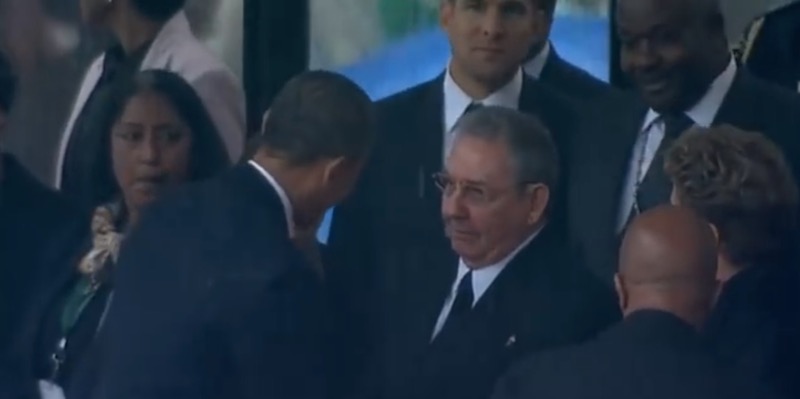
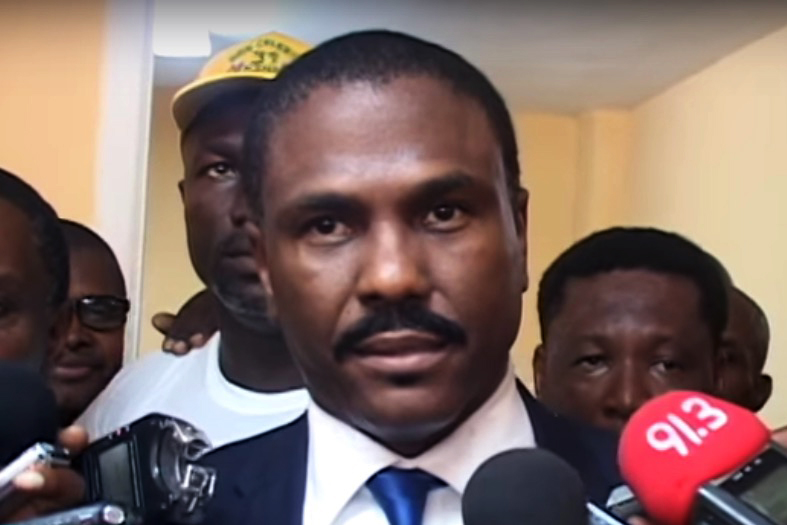
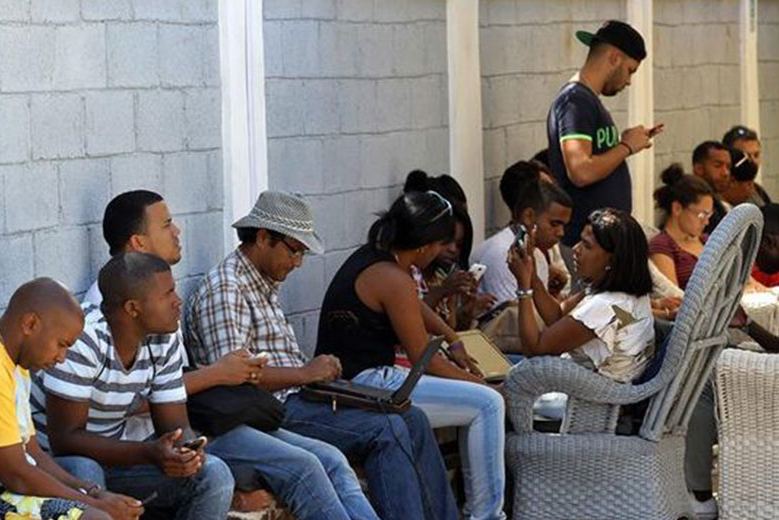
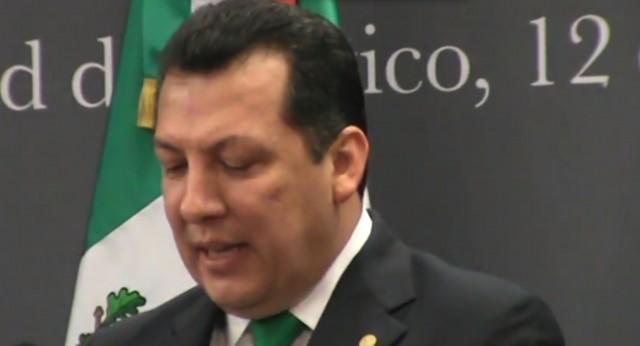
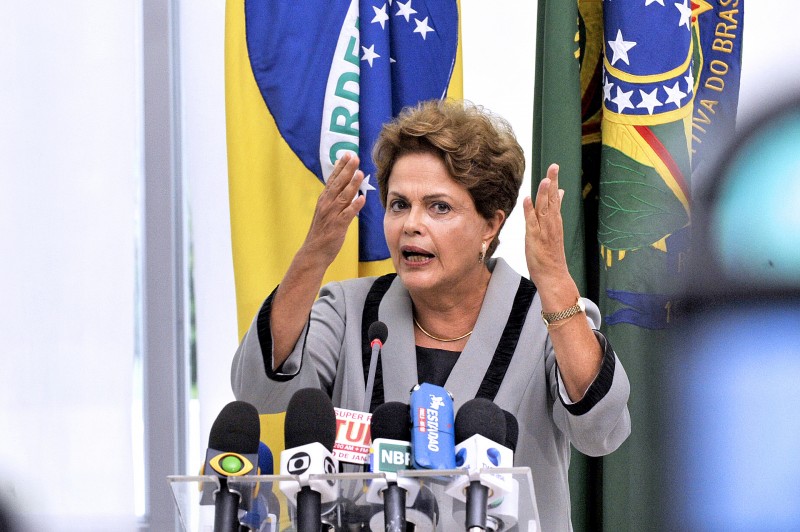

1 Comment
[…] Rican self-determination will be addressed. Latin America News Dispatch editor Dusty Christensen reports from New […]
Comments are closed.